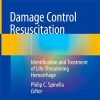Mortality in Patients with SA-AKI Using the MIMIC-III Database
researchsquare.comIn this study, we identified critical factors influencing mortality in patients with Sepsis-Induced Acute Kidney Injury (SA-AKI) using the MIMIC-III database. The primary findings of our research, including advanced age, severity of AKI, hypoalbuminemia, delayed antibiotic administration, and elevated AST and bilirubin levels, offer substantial insights into the clinical management of these patients.
Our findings have significant implications for clinical practice.
The study highlights the importance of early and timely interventions, particularly regarding antibiotic administration, which is shown to reduce mortality risk.
The relationship between hypoalbuminemia and increased mortality underscores the need for nutritional support and monitoring of serum albumin levels in critically ill patients.
Moreover, the identification of AKI stage severity as a strong predictor of mortality emphasizes the need for early detection and intervention in patients showing signs of progression.
These insights could inform more personalized care strategies, helping clinicians prioritize high-risk patients and adjust therapeutic approaches accordingly.
Additionally, our findings suggest that liver dysfunction, indicated by elevated AST and bilirubin levels, plays a critical role in mortality among SA-AKI patients.
This highlights the necessity for clinicians to monitor liver function closely, especially in critically ill patients with multiple organ dysfunctions.

















